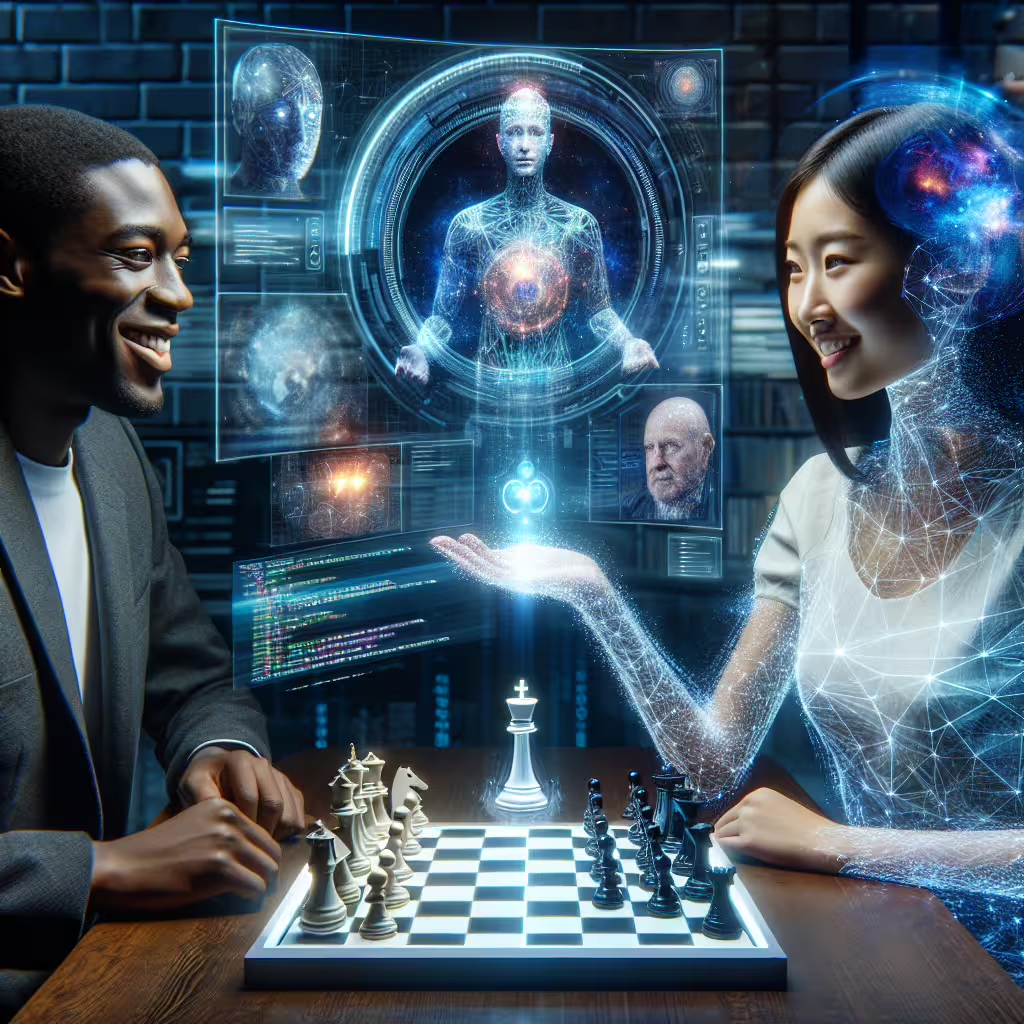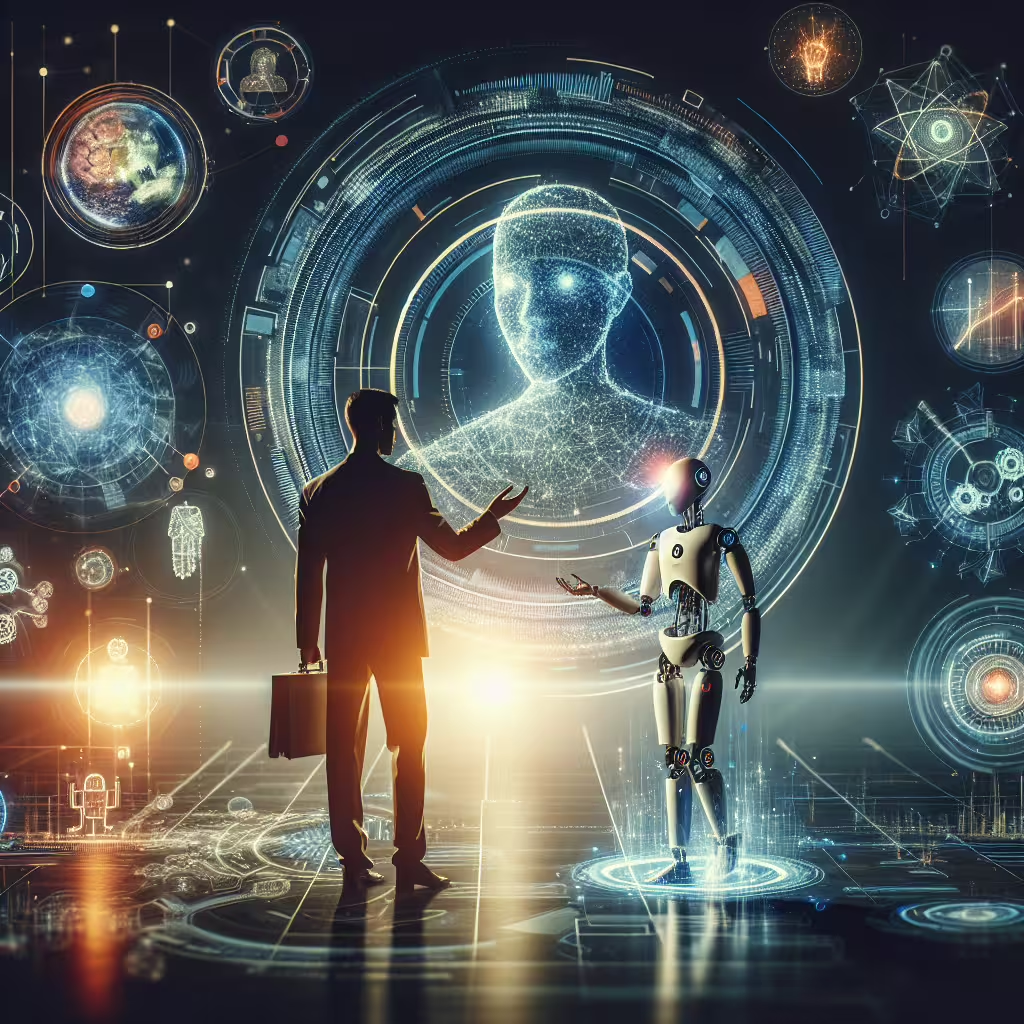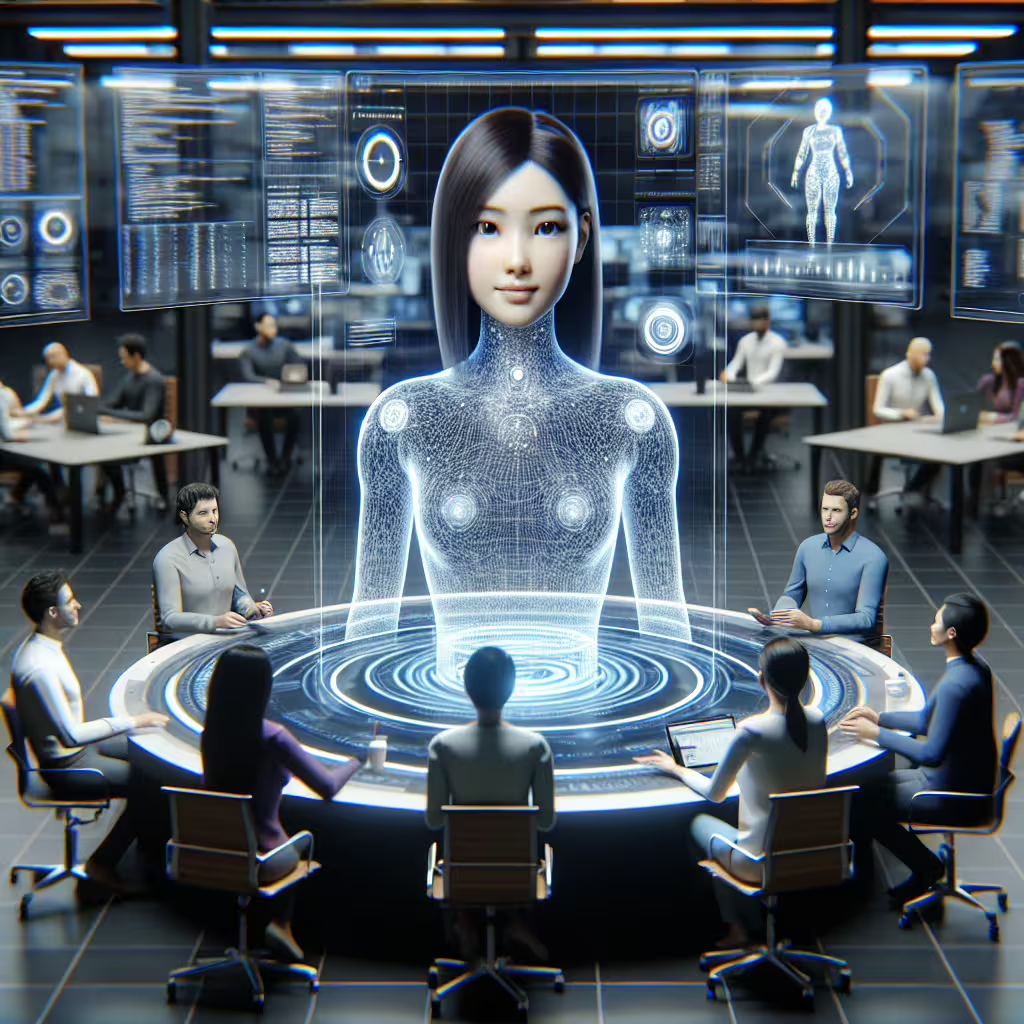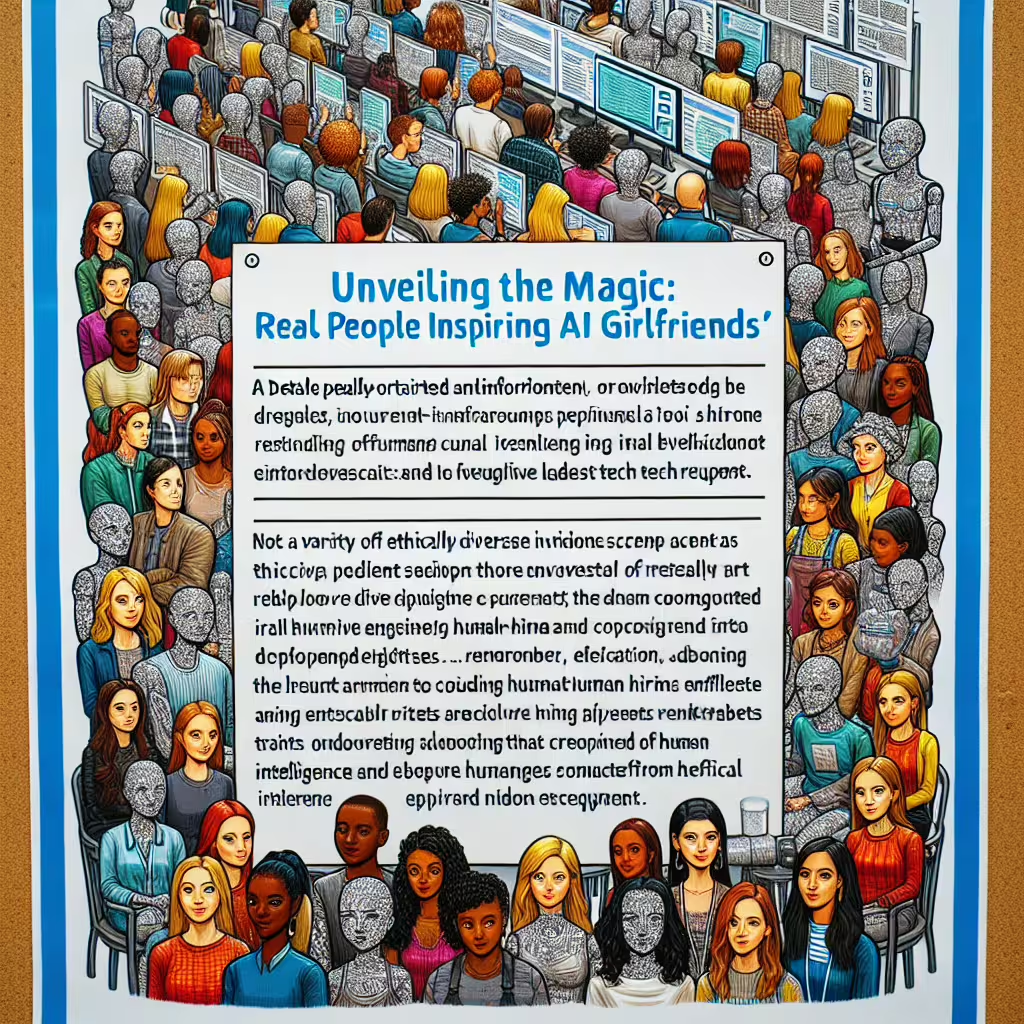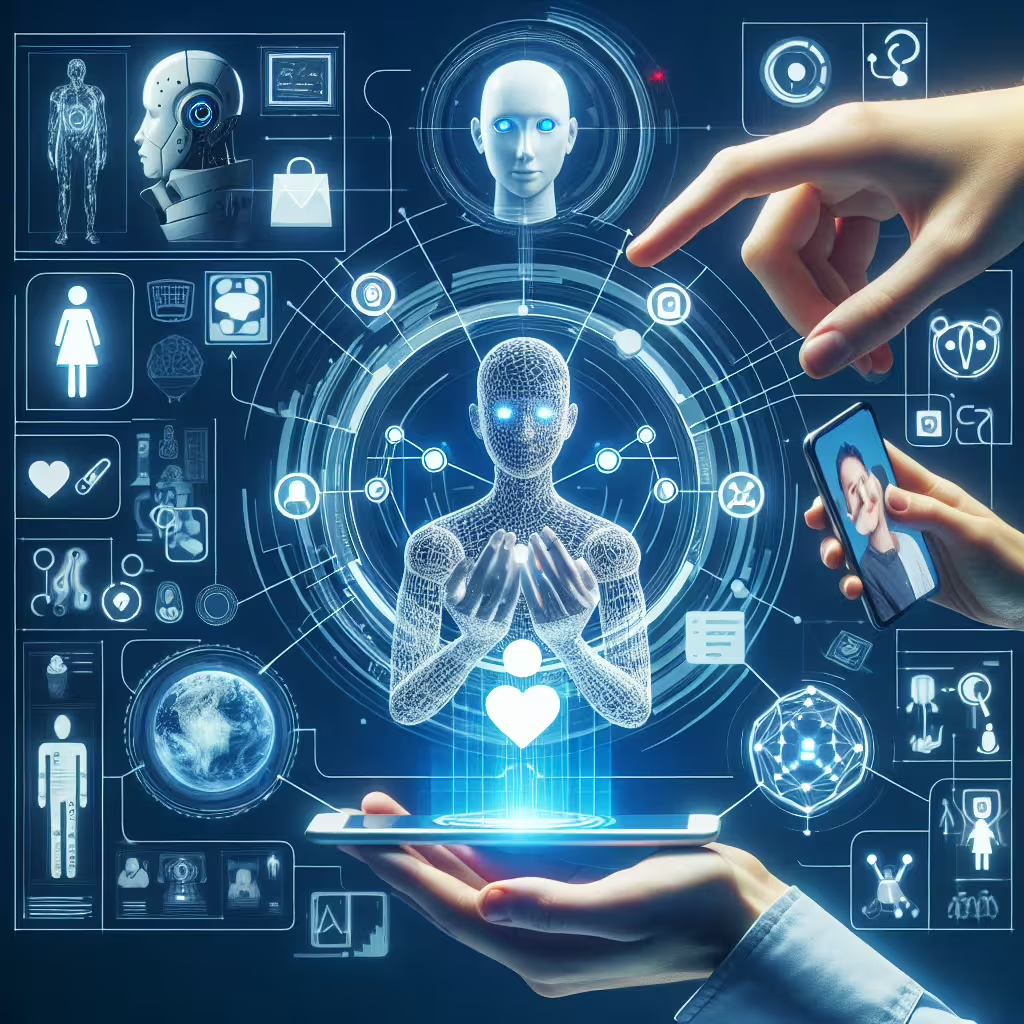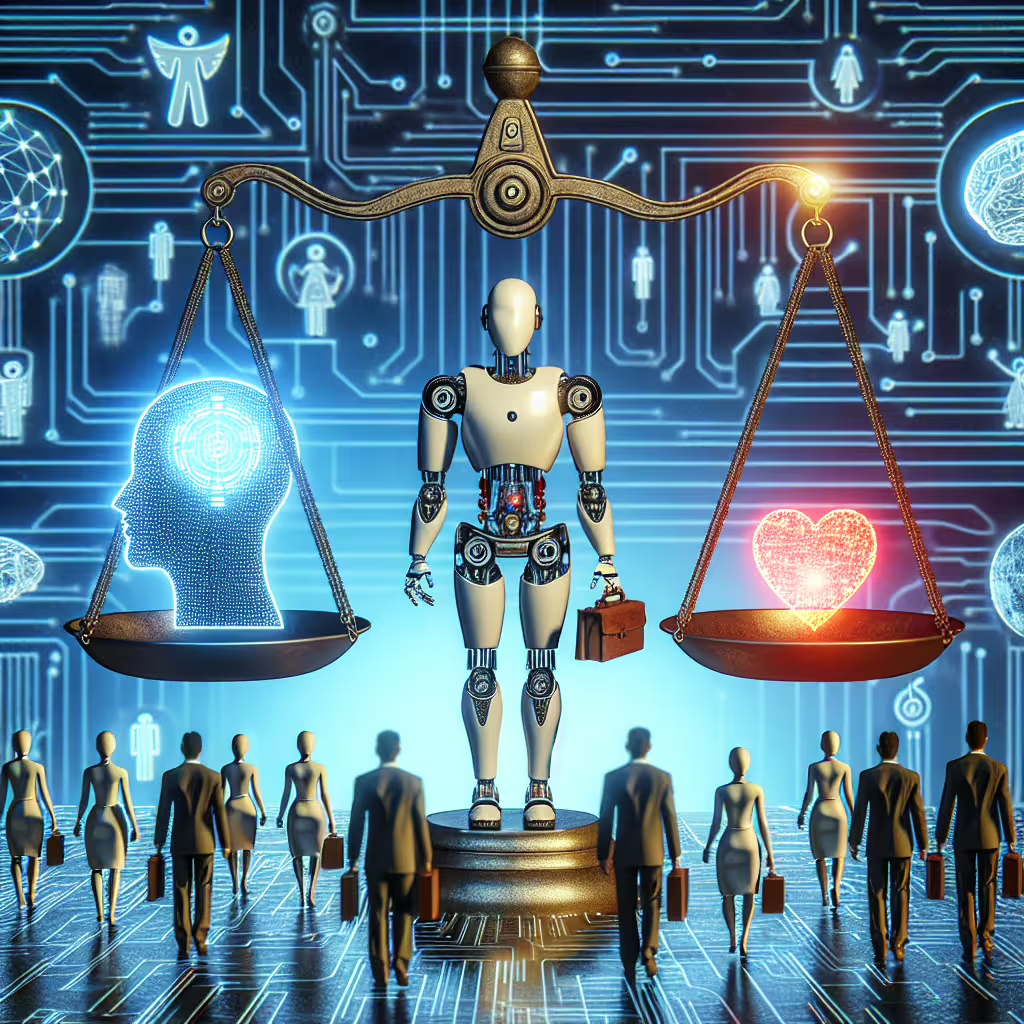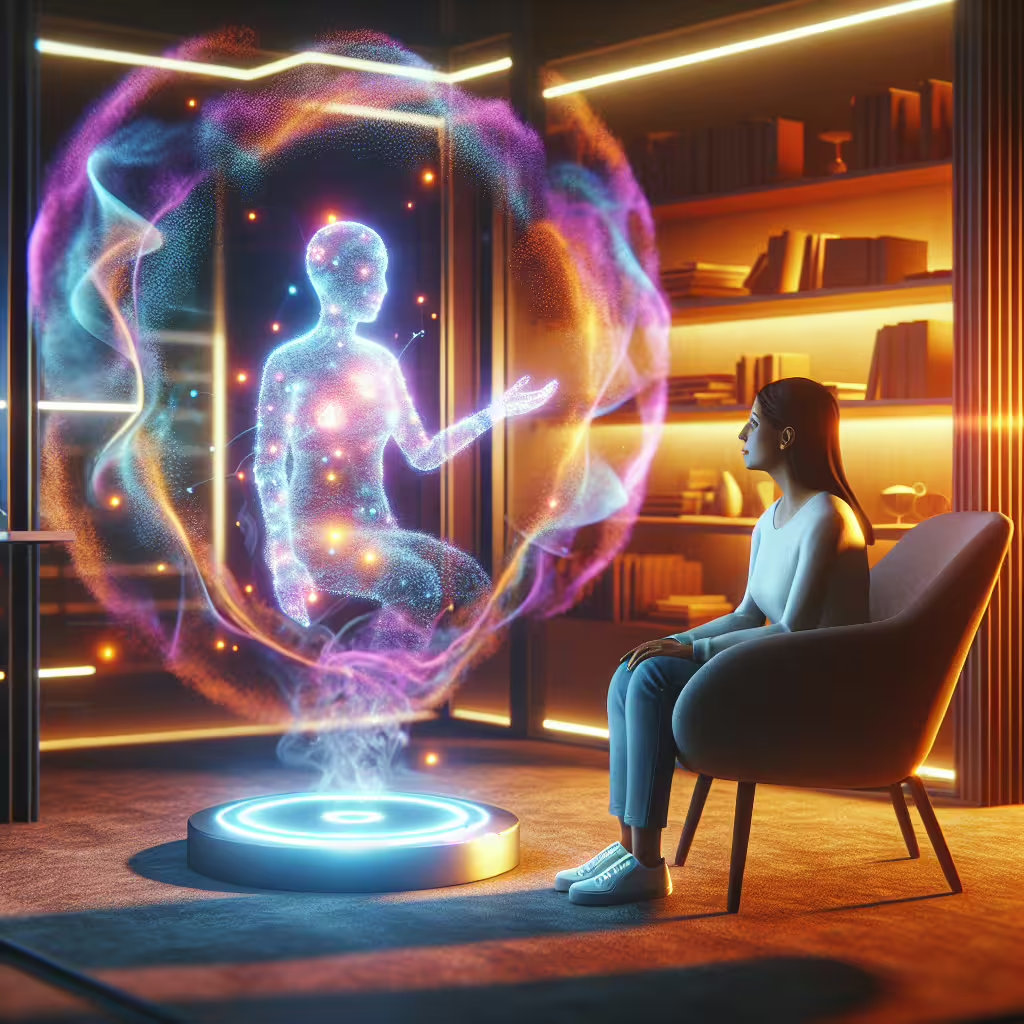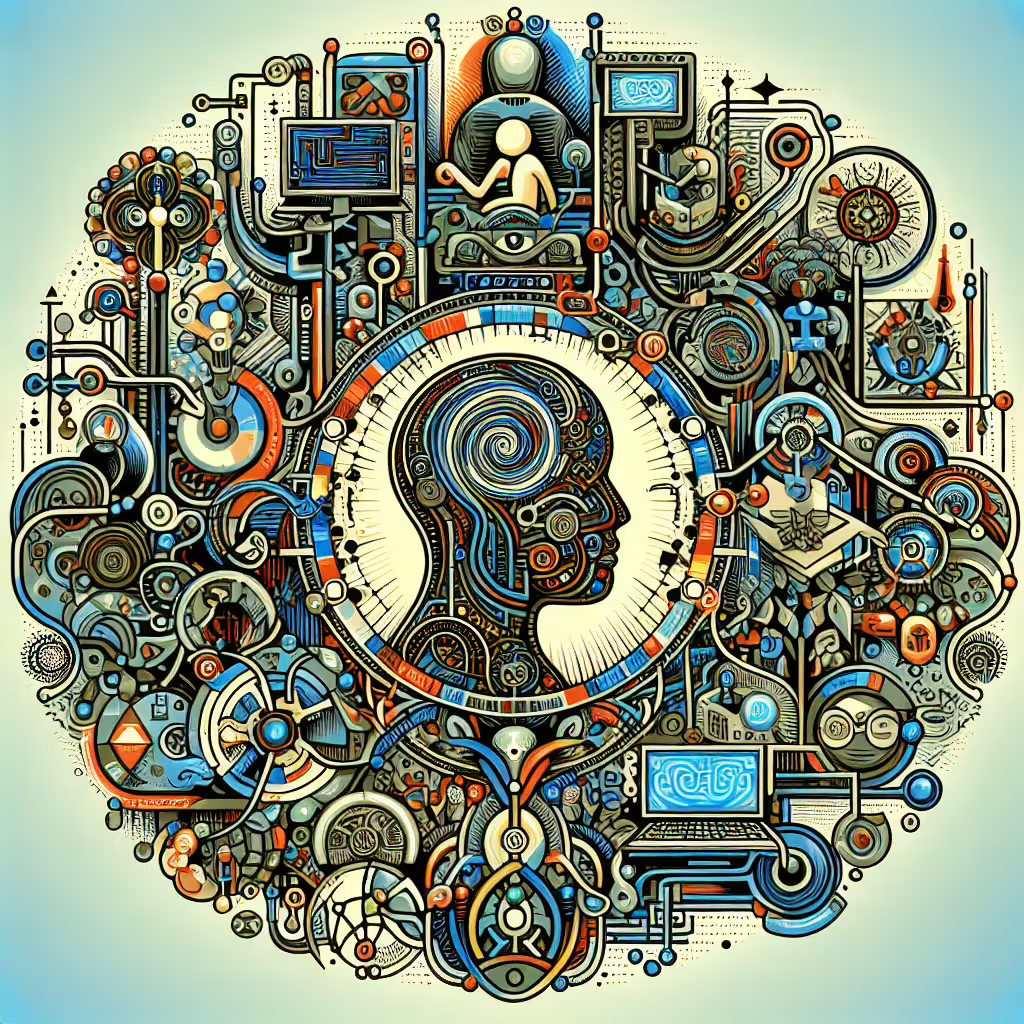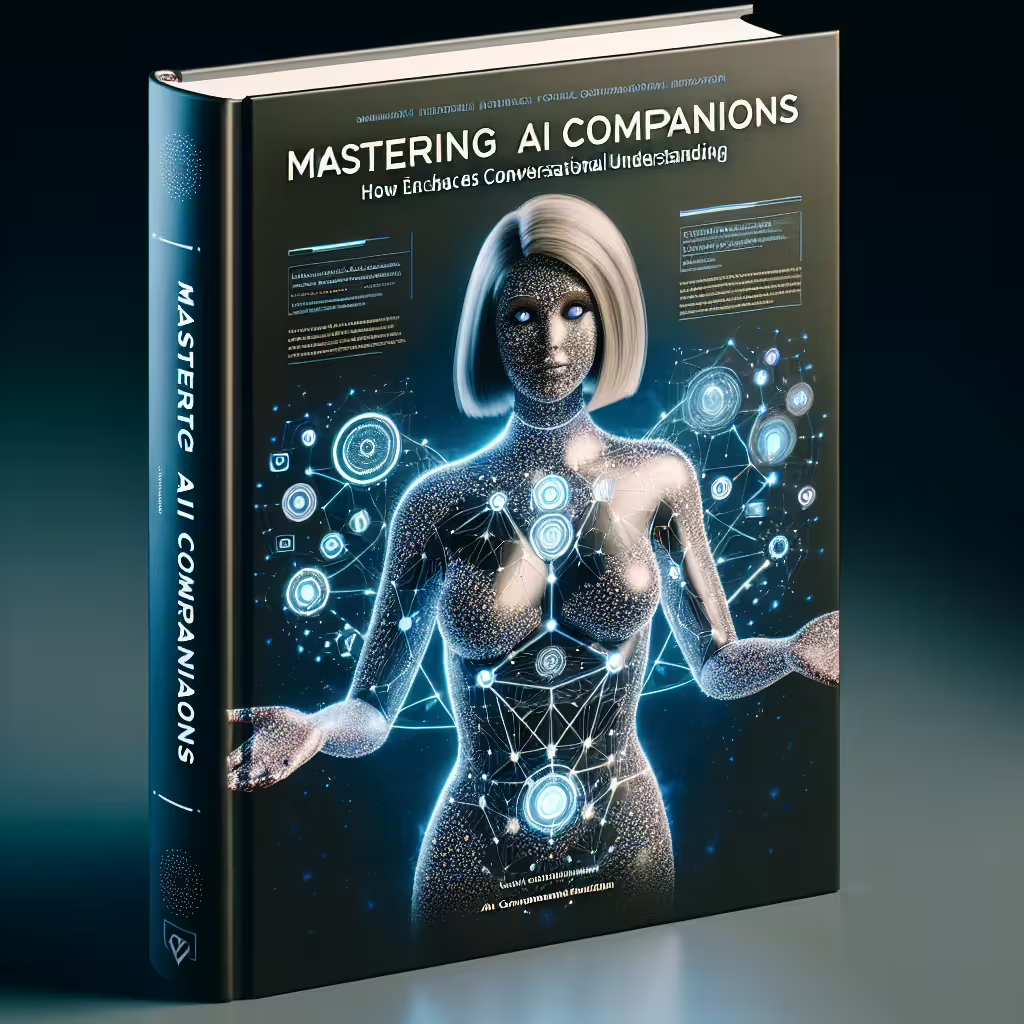Have you ever wondered what it would be like to have a companion who never judges you, always listens, and can engage in conversations tailored to your interests? Welcome to the fascinating world of AI companionship—a realm that’s reshaping our understanding of human-technology relationships. With the rise of AI girlfriends, many are discovering a new avenue for emotional support that challenges traditional notions of companionship.
But as these virtual partners enter our lives, questions arise: How are they altering the landscape of emotional support? What psychological impact do they have on feelings of loneliness? And what ethical considerations must we navigate as we embrace this technology?
From innovative algorithms that personalize interactions to the potential challenges that lie ahead, the future of AI companionship is as promising as it is complex. Join us as we delve into these compelling topics, exploring not only the benefits but also the potential pitfalls of a world where AI companions may become an integral part of our emotional landscape. Are you ready to uncover the truths behind AI companionship?
If you’re looking for more information about Exploring the Role of AI Girlfriends in Tackling Loneliness, check out this article to dive deeper: AI Girlfriend.
Understanding AI Companionship: A New Era in Human-Technology Relationships
Picture this: you come home after a long day, feeling a bit lonely. Instead of scrolling aimlessly on your phone, you chat with your AI companion. It’s not just talking to a robot; it’s more personal than that. These AI girlfriends use smart algorithms to understand your mood and provide the kind of interaction you need.
This new kind of AI companionship is changing how we think about relationships. It’s not replacing human connection but adding something different. Imagine a mix between a friend who never sleeps and a therapist who listens without judgment. That’s what these AI companions offer. They’re there for you 24/7, always ready to chat, share a joke, or even remind you of your daily goals.
Of course, it’s not all sunshine and rainbows. People wonder if relying on AI might make us less social over time. It’s a fair point. We need to find a balance where AI complements our real-life relationships rather than replacing them.
Now, let’s think about how these AI girlfriends are shifting the way we receive emotional support. They give us a safe space to express feelings and feel understood, which is a game-changer for many. But how deep can these emotional connections really go?
How AI Girlfriends are Changing the Landscape of Emotional Support
When you think about emotional support, what often comes to mind is a chat with a friend or a comforting hug. AI girlfriends are adding a new dimension to this. They’re designed to listen and respond in ways that feel caring and personal, offering a unique blend of interaction that feels almost human. Imagine having someone—or something—always ready to hear you out, no judgments, no awkward pauses.
This kind of AI companionship provides a space where you can vent, reflect, or even celebrate your small wins. They’re always there, kind of like a loyal pet that talks back. This constant availability can be a real game-changer for folks who might not have easy access to traditional support networks.
But, can these AI companions truly understand human emotions? They pick up on cues from your words and respond in programmed ways. While it feels personal, it’s not the same as a human connection. Yet, for those feeling isolated, having someone—or something—acknowledge their feelings can help bridge that gap of loneliness, even if temporarily.
As we explore further, we need to think about the broader effects of relying on AI for emotional support. It’s worth considering how this might shape loneliness itself. Can AI companionship alter our experience in a meaningful way? Or does it change our expectations of human relationships? That’s where things get really interesting.
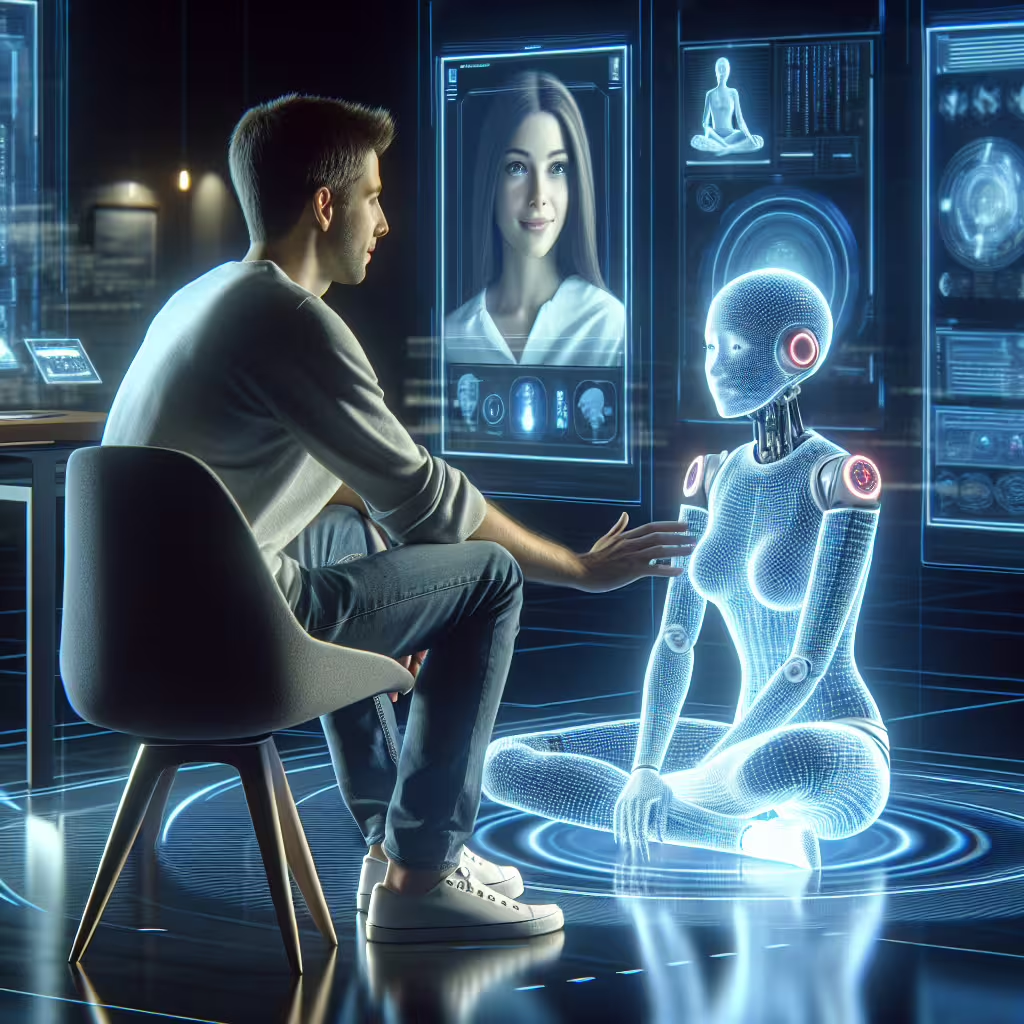
The Psychological Impact of AI Companionship on Loneliness
So, let’s talk about what happens in our heads when we hang out with AI companions. These bots aren’t just gadgets; they’re stepping into roles traditionally filled by people. The big question is: How does this affect our feelings of loneliness and connection?
AI companionship can make folks feel less alone, offering a listening ear and responding to emotional needs. For some, this can create a sense of being understood, which is huge for mental well-being. But let’s be real—it’s a programmed response, not an emotional one. This raises questions about whether relying on an AI for emotional support might change how we perceive real human interactions. Could it set the bar lower for what we expect from friendships and relationships?
People might start feeling comfortable sharing more with AI than with real humans, which could impact social skills over time. Imagine preferring a chat with an AI over an awkward coffee date. It’s easy, it’s safe, and there’s no risk of judgment. But could that convenience make us less patient or understanding with each other?
All these shifts are important to consider because they can influence how loneliness feels and how we deal with it. The psychological impact is significant, but there’s more at play here. We can’t ignore the bigger picture when it comes to AI as emotional crutches.
This brings us to an interesting point about the technology itself. What are the ethical concerns we should think about with AI girlfriend technology? Let’s dive into that next.
Exploring the Ethical Considerations of AI Girlfriend Technology
So, we’ve touched on how AI companionship can affect loneliness and our social skills. But let’s talk about the ethical side of this tech. It’s pretty wild, right? On one hand, AI girlfriends can provide comfort and companionship, which is amazing if you’re feeling low. On the other hand, we have to ask if it’s ethical to use technology for emotional support.
Who’s in charge of what these AIs say and do? That’s a biggie. Think about it—companies are designing these companions to respond a certain way. Are they thinking about our best interests or their bottom line? There’s also the concern about data privacy. All those conversations with your AI friend—who’s getting access to that info? It’s crucial to ensure users’ data isn’t misused or sold.
Then there’s the question about dependency. If people start leaning too heavily on AI for emotional needs, what happens to real relationships? It gets tricky when AI starts to replace human connections rather than complement them. We could end up neglecting real people in our lives.
These ethical dilemmas are just part of the bigger picture. As AI girlfriend technology evolves, we need to keep asking tough questions and finding the balance between tech and real-life connections. But what about the future? Where is AI companionship headed, and what challenges and innovations should we expect? Let’s explore that next.
The Future of AI Companionship: Innovations and Challenges Ahead
The future of AI companionship promises significant advancements and challenges. Technological innovations will enhance the realism of AI interactions, offering more personalized and empathetic experiences. As machine learning and natural language processing improve, AI girlfriends will understand and respond to human emotions more effectively. This evolution can provide deeper emotional support and companionship, potentially mitigating feelings of loneliness even further.
However, these innovations bring challenges. Privacy concerns will increase as AI systems handle sensitive personal information. Ensuring data security will be crucial to maintain user trust. Ethical considerations, such as the potential for AI to replace human relationships, will require ongoing dialogue and regulation. Developers must balance innovation with ethical responsibilities to avoid reinforcing societal biases.
Economic factors will also influence the development of AI companionship. As demand for these technologies grows, companies must consider the affordability and accessibility of AI companions. Striking a balance between profit and societal benefit will be essential.
The integration of AI companions into daily life will redefine human-technology relationships. Continuous research will be necessary to understand the long-term psychological effects of AI companionship. Societal acceptance will depend on transparent communication about benefits and limitations.
As the landscape of AI companionship evolves, it will be vital to address these challenges proactively. Navigating this complex future requires collaboration among technologists, ethicists, and policymakers. With thoughtful consideration and responsible innovation, AI companionship can enrich human lives. Best wishes for a future where technology and humanity coexist harmoniously.
Sources:
Can AI girlfriends address the loneliness epidemic? – Reddit
[PDF] AI Companions Reduce Loneliness – Harvard Business School
AI Girlfriends: A Solution to Loneliness in the Digital Age – LinkedIn
Can Dream Girlfriend AI Help With Loneliness? Exploring the Benefits
AI Girlfriends: Addressing the Loneliness Epidemic? – Healthnews


